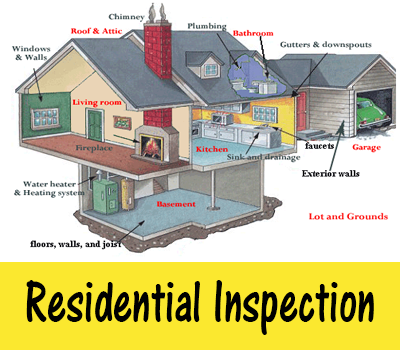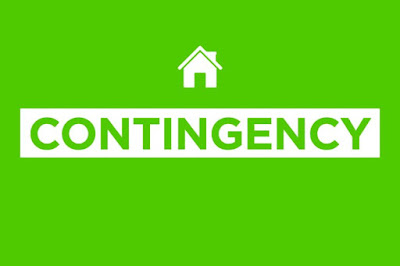

Ready For Your Inspection?
Congrats! Your offer was accepted! Now it's time to schedule your inspections. Yes, I always suggest electing the inspection contingency when submitting your offer as this offers you a form of purchase protection. It can also provide negotiation leverage when you get the inspection results and may prevent financial heartache when you are faced with a major and costly fix down the road. Hopefully a successful inspection results in one less concern offering more peace of mind as you work through your property purchase. Although it may be tempting to make your offer without an inspection, and may even help you win a bid over other offers that have excluded that contingency, choosing to have one is a guarantee you can opt to back out of the deal if there is something that can't be resolved. So for your protection, get an inspection!

Sellers should be aware that they have a legal obligation to disclose all material facts about a property (even those issues found in a previous buyer's inspection identified in a canceled transaction). This is called the Seller's Disclosure/Transfer Disclosure Statement and I always recommend asking for this even before looking at the property. An inspection contingency is typically written into the residential sales agreement and for commercial investing it's part of the due diligence period. There are many kinds of inspections that can be requested including, but not limited to, the basic home inspection, radon, pests, sewer, water etc. The cost varies depending on what type of inspections you choose and yes, you as the buyer are traditionally responsible for covering the cost, but it is so well worth it. You will need to pick an inspector pretty quickly, once the offer is accepted, as there are time limits on performing various parts of a real estate transaction prior to it's closing. And the inspection is one of those time regulated steps. If you are using a Realtor, they can provide you with a list of ASHI certified inspectors, otherwise ask for referrals to ensure you feel comfortable that they are, above all else, thorough and impartial. Also check your state for education, certification and licensing requirements for inspectors as they can vary significantly. Ok, so you've picked someone you feel comfortable with and have scheduled them. Now what?

Always try to be present during the inspection as this is your opportunity to ask questions of the inspector along the way. (If you can't be present, request the opportunity to discuss the report with your inspector.) The inspector will show you areas of concern now or items to be watched going forward, either to repair soon or for on-going maintenance. From a Seller's perspective, it may be nerve wracking to think someone is going to provide an opinion of issues with your property, but try to put yourself in the place of the Buyer wanting to be confident about their impending purchase. While a Buyer may ultimately decide to back away from the purchase, negotiations typically work out well for both sides.

A typical inspection can vary in time it takes to complete, anywhere from an hour to 2 for single family homes while multi-unit properties may extend much longer. An inspector will examine the property from the foundation to the roof and on the inside the electrical/gas systems, walls, flooring, plumbing, windows, doors, insulation etc. Again, there are various types of inspections you can opt for in addition like water, sewer, radon, etc. It can take a day to a few days to receive the inspection results. Once received it's very important that you review the major concerns identified, preferably with a real estate professional, to fully understand what the items found on the report actually mean and how to move forward. Not everything is crucial, but health and safety issues should always be addressed. In my experience I have seen a Buyer want everything on the report fixed before proceeding. But the reality is that the Sellers can choose to fix everything, fix some things or fix nothing. They can also agree to issue a credit or change the purchase price so that you, as the Buyer, can fix certain items. So as a Buyer, pick and choose your battles carefully. Definitely I would suggest addressing the issues that are of a health and safety concern, followed by items that a Seller is likely to fix to keep the deal moving forward. Here's where you really have to have strong negotiation skills or at the very least an advocate with those strong negotiation skills. Your requests of the Seller and the final negotiated results will be reduced to an addendum added to your sales agreement to protect both you and the seller.

Still, though, there are times when a mutual agreement cannot be reached and if so, you as the Buyer can invoke the inspection contingency and back out of the deal. Your hand/deposit money may or may not be in jeopardy, but better that than buying a property with severe issues that would cost tens of thousands of dollars to fix! Or even worse, not having an inspection contingency as part of the agreement could result in a never ending "money pit" purchase.

As I said before many Buyers especially here in Pittsburgh, are opting out of having an inspection and it may not be necessary with new construction. But it's always a wise choice that for your protection, have a property inspection!




Comments